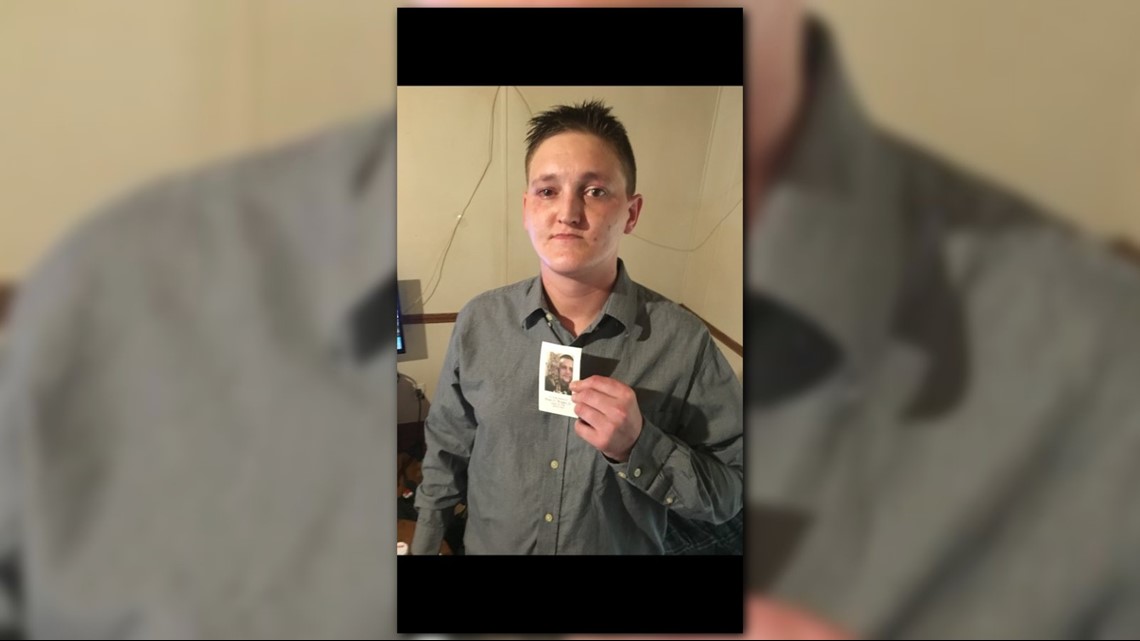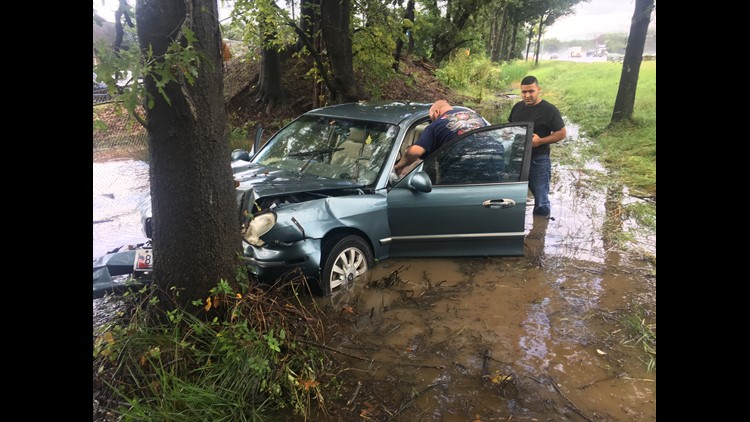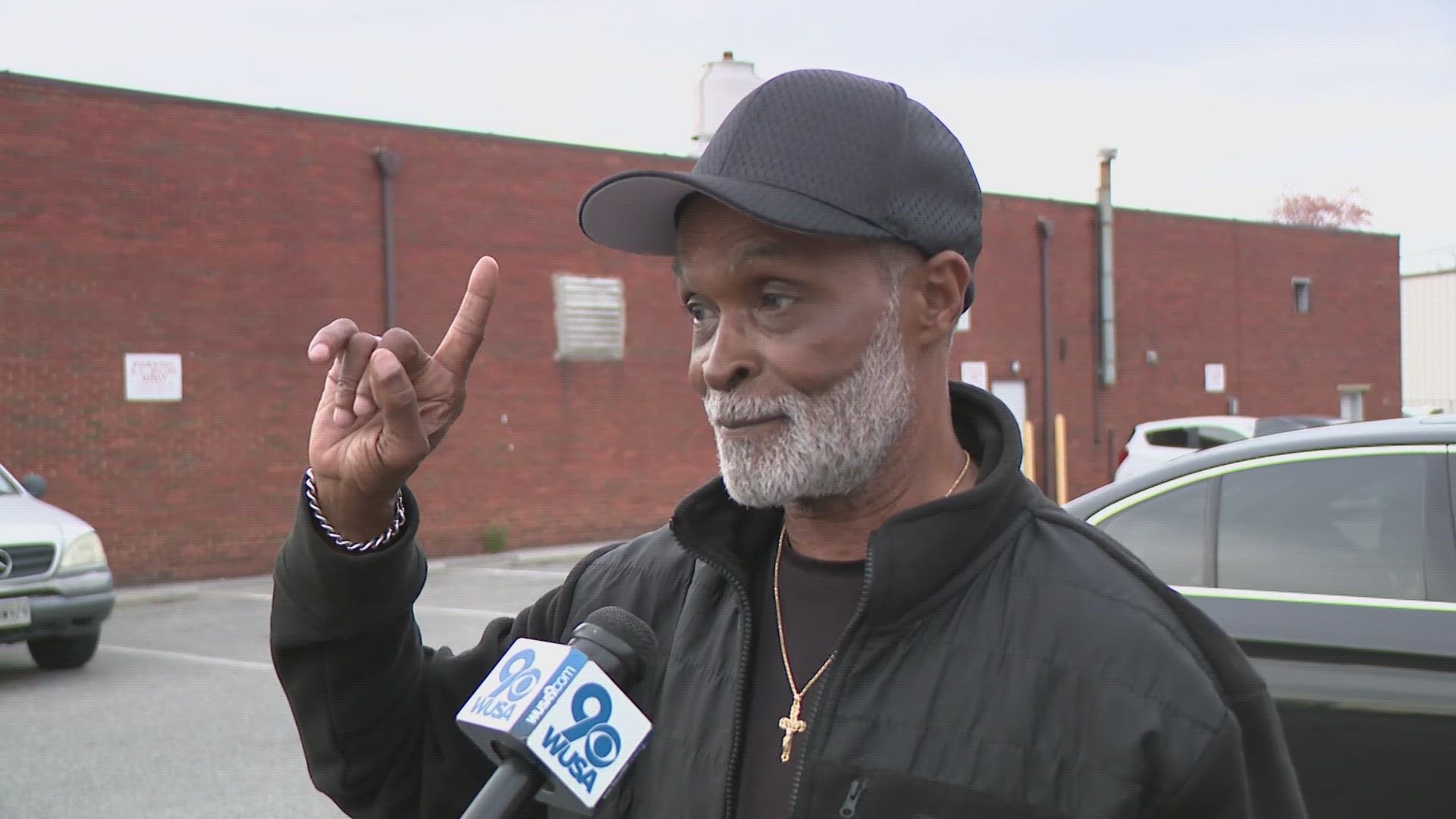Elkridge, MD -- A single-car accident along I-95 in Maryland Tuesday involving a man who had overdosed on opioids is prompting WUSA9 reporter Scott Broom to begin carrying the opioid antidote Noloxone while he's on the job.
Broom met the survivor a day later and was shaken by how close the man had come to death and how helpless the reporter was at the time to do anything about it.
"My experience Tuesday proved to me that the opioid epidemic is so widespread just about anyone might be called on to save a life," Broom said. "It just happened to be my turn Tuesday and I was not prepared at all."
The governors of Maryland and Virginia have issued standing orders that pharmacies must sell Noloxone to any state resident who wants it, even without a doctor's prescription.
US Surgeon General has also issued a nationwide advisory to encourage people to have Noloxone available in medicine cabinets, pockets or purses because of the scale of the opioid epidemic and the antidotes remarkable power to save lives.
Online training on using Noloxone is widely available.
Broom's decision came after he spotted a wrecked car in a flooded ditch off I-95 southbound near Arbutus Maryland while driving to an assignment. The reporter then witnessed how paramedics administering Noloxone saved the driver's life in minutes.
"I just spotted this car down in the trees in some water out of the corner of my eye and I stopped because it didn't look right at all," Broom recalled.
Broom called 911 after finding a man unconscious behind the wheel with water up to his ankles inside the car.
While Broom made the emergency call, an off-duty Maryland Transportation Authority Police Officer and a volunteer firefighter from New Jersey who was passing by also arrived and began to render aid.
"I thought the driver was definitely going to die," Broom said. "His skin was grey, his lips were blue, he wasn't breathing and the volunteer from New Jersey said he could barely get a pulse."
"I thought the impact of the accident caused all this, but I was totally wrong," the reporter recalled.
Arriving paramedics immediately recognized the man's symptoms were from an opioid overdose.
They administered a nasal spray dose of Noloxone on the scene and the victim started to come back to life within minutes.
"It looked like a miracle to me," Broom said. "Now I've learned pretty much anyone can give this antidote if they see the signs of an overdose."
The accident victim is Keith Allan Wright of Elkridge, Md.


"I'm grateful and I'm humble," Wright told Broom on Wednesday.
Wright said he is a recovering opioid addict who relapsed Tuesday.
"What I took was smaller than a match head," Wright recalled. "And I ended up off the side of the road in Shock Trauma."
"Everyone should have Noloxone," Wright said. "You don't know if your kids are using it. You don't know if they want to try something."
Wright has used Noloxone to revive other addicts and keeps the antidote in his home.
Wright's brother died in April 2018 after an overdose while traveling.
In the nearby City of Baltimore, public health officials say at least 2800 lives were saved by Noloxone in just a ten month period from 2015 to 2016.
Baltimore's chief health officer has also issued a standing order to the city's pharmacies to provide the antidote to any city resident who asks for it.
The city's website DontDie.org educates residents on the signs of overdose and how to react.
Naloxone is most commonly given as a nasal spray. It cannot harm an individual if it is given in error. So-called Good Samaritan laws in Maryland and Virginia protect any individual from being sued for giving Noloxone to a stranger in need.
In Washington, D.C., Naloxone is provided to citizens by the city's health department through shelters and counseling agencies, according to department spokesperson Alison Reeves.
Accident victim Keith Wright said he became addicted to opioids after being being prescribed pain medication after an accident on the job. He is a former elevator mechanic.



